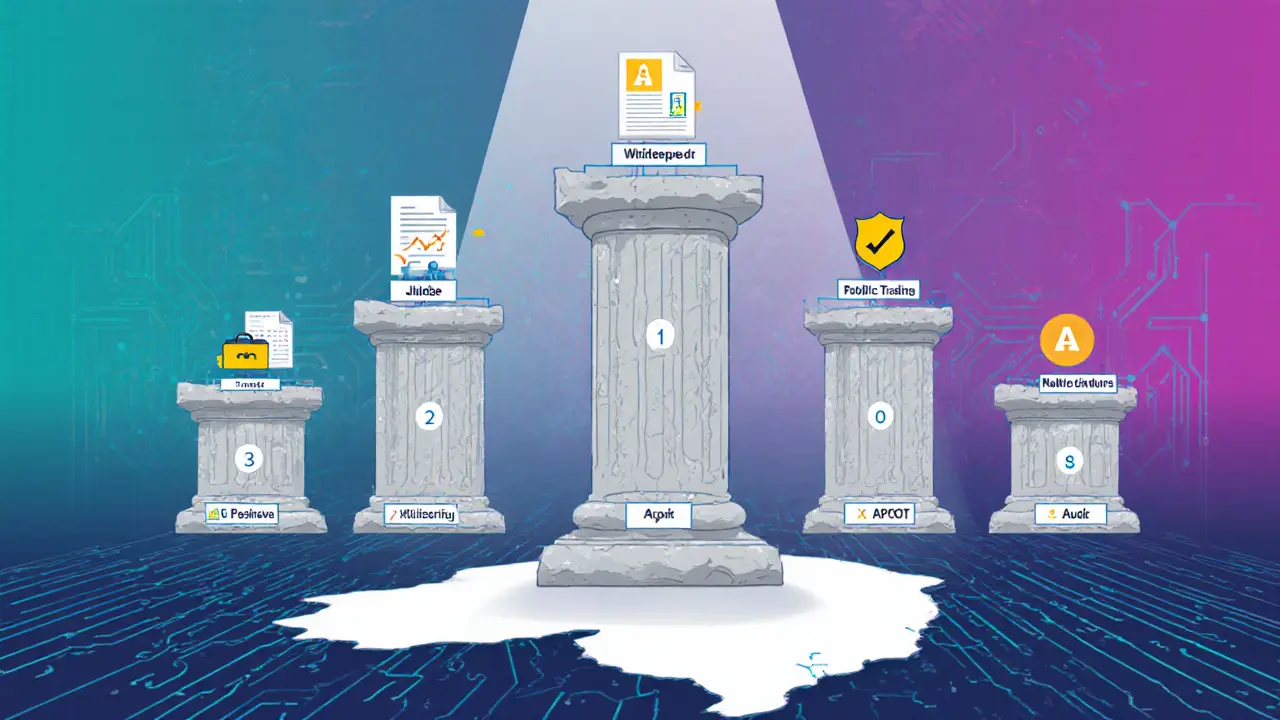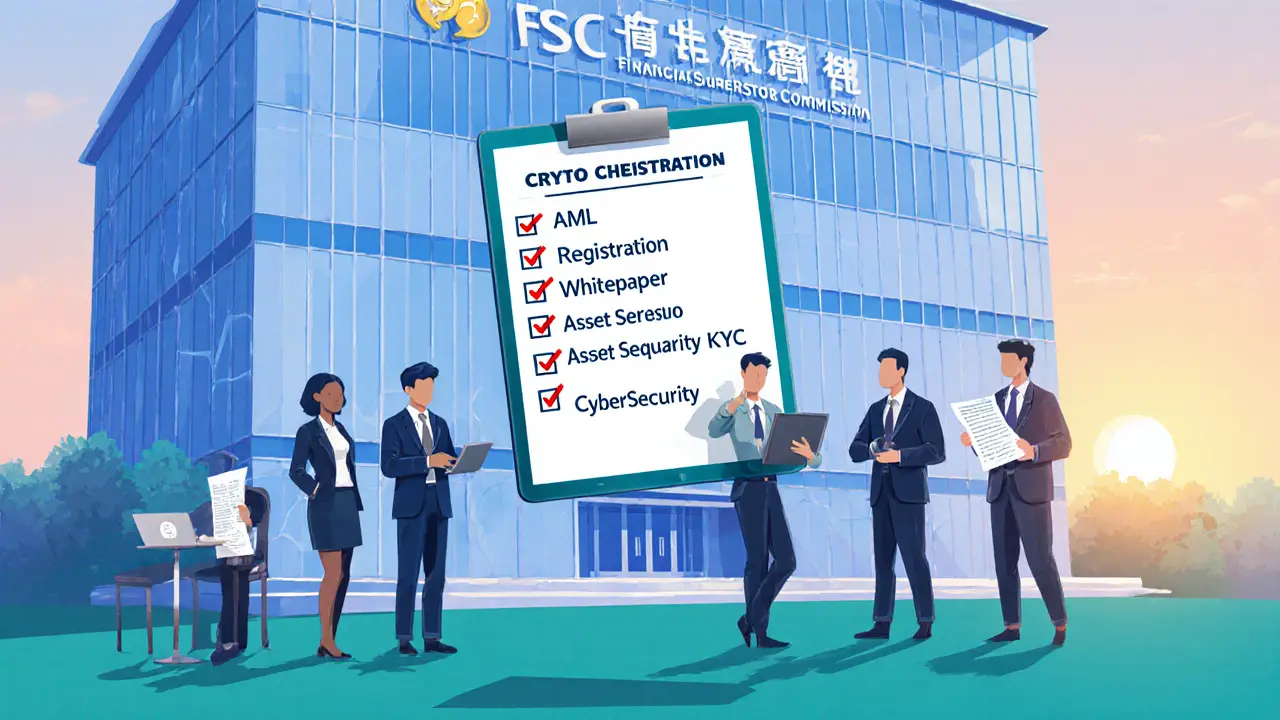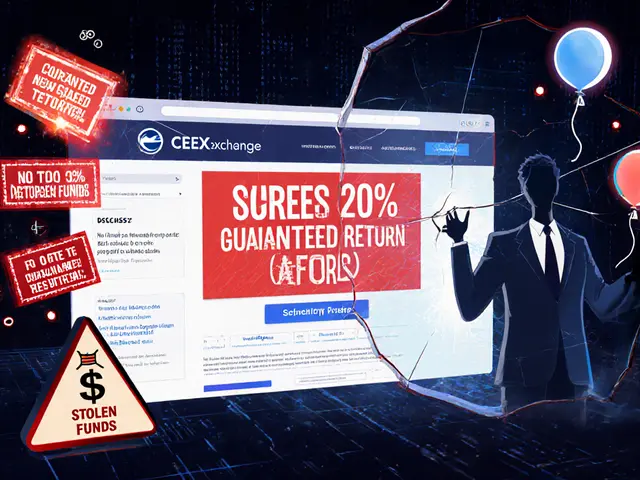FSC Crypto Compliance Checklist
Current Regulatory Overview
This checklist helps crypto exchanges operating in Taiwan understand their compliance obligations under FSC regulations. Check off items as you implement them.
Registration Requirements
VASP Guidelines
Special Compliance Areas
Compliance Progress
Quick Tips
- Register with FSC before offering services
- Update whitepapers regularly
- Segregate customer assets
- Conduct annual audits
- Ensure compliance officer certification
- Plan for cross-border reporting
Important Notice
FSC regulations are evolving. Stay updated with official announcements for changes to requirements.
Key Takeaways
- All crypto exchanges operating in Taiwan must register with the FSC under the AML Registration scheme.
- Virtual Asset Service Providers (VASPs) follow eight detailed guidelines covering white‑paper disclosure, asset segregation, and cybersecurity.
- Security tokens are restricted to licensed securities dealers; only one STO has cleared the TPEx process so far.
- Professional investors can access foreign crypto ETFs under a new five‑point framework.
- Compliance costs are rising, prompting market consolidation but boosting consumer confidence.
Since 2023 the Financial Supervisory Commission (FSC) has been shaping Taiwan’s approach to digital assets, treating cryptocurrencies as virtual commodities and imposing a strict compliance regime on exchanges. If you run a crypto exchange-or plan to launch one-in Taiwan, you need a clear roadmap of the current rules, the pending legislation, and the practical steps to stay on the right side of the regulator.
Why the FSC’s Framework Matters
The FSC is Taiwan’s top‑level financial watchdog. By classifying crypto as a virtual commodity rather than legal tender, it can apply existing AML, securities, and consumer‑protection laws while still allowing innovation. This “middle path” gives exchanges a predictable environment, but it also means they must meet a long checklist of duties that many Western jurisdictions still lack.
Core Registration Requirements
Effective July2024, every Virtual Asset Service Provider (VASP) -including cryptocurrency exchanges, custodians, and wallet providers-must complete an Anti‑Money‑Laundering Registration with the FSC before offering services in Taiwan. The process includes:
- Submitting a detailed corporate structure and ownership chart.
- Providing a risk‑based AML/CFT program vetted by an approved auditor.
- Designating a compliance officer who holds a relevant certification.
- Uploading a publicly accessible whitepaper that outlines token economics and user rights.
- Passing a cybersecurity assessment that covers hot‑wallet controls, multi‑factor authentication, and incident‑response plans.
Both domestic and foreign exchanges face the same registration hurdle; the FSC does not differentiate based on the issuer’s nationality, only on where the service is offered.
Eight Pillars of the VASP Guidelines
In response to the FTX collapse, the FSC released a set of practical guidelines in September2023. Though not hard law, they function as industry standards. The eight pillars are:
| Pillar | Key Requirement | Typical Evidence |
|---|---|---|
| Whitepaper Publication | Full disclosure on website | PDF linked from homepage, version control log |
| Asset Segregation | Separate customer and VASP wallets | Audited wallet address list, multi‑sig custody policy |
| Fair Trading | Transparent order‑book handling | Real‑time trade data feed, audit trail |
| Information Security | Cold‑wallet storage, encryption standards | Hardware security module (HSM) certificates |
| Public Disclosure | Periodic reports to FSC | Quarterly AML and financial statements |
| Internal Controls | Segregated duties and regular audits | Internal audit schedule, risk matrix |
| Audit Requirements | Annual independent audit | Audit report signed by CPA firm |
| Cross‑border Operations | Extra reporting for offshore VASPs | Foreign jurisdiction compliance certificates |
Failure to meet any pillar can trigger fines up to NT$10million (≈ US$320k) or revocation of the registration.
Security Token Regulation - The Tight Spot
Security tokens are treated under the Securities Exchange Act. Only licensed securities dealers may issue or trade them, and the Taipei Exchange (TPEx) has been appointed to draft and enforce specific STO regulations. The barriers include:
- Mandatory prospectus filing with the FSC.
- Investor qualification checks (net worth ≥ NT$5million).
- Ongoing disclosure obligations similar to listed equities.
To date, only one security‑token offering has cleared TPEx’s vetting, illustrating how restrictive the framework remains.

Crypto ETF Access for Professional Investors
In early 2025 the FSC, together with the Securities Business Association, rolled out five key criteria that let qualified professional investors purchase foreign crypto ETFs. The criteria focus on:
- Minimum investment of NT$3million.
- Verification of investment experience (3‑year track record).
- Use of authorized custodians approved by the FSC.
- Regular reporting of holdings to the regulator.
- Risk‑disclosure acknowledgment.
This measured approach signals that Taiwan is ready to blend traditional finance products with digital assets, provided the investors are sophisticated enough to handle volatility.
Compliance Checklist for Exchanges
Below is a quick‑reference checklist that any exchange should run through before launching or renewing its FSC registration.
- FSC registration: Submit AML registration form and receive approval.
- Whitepaper posted and updated regularly.
- Separate cold‑wallets for customer assets; maintain hot‑wallet for operational flow.
- Implement AML/KYC procedures aligned with Taiwan’s Money‑Laundering Control Act.
- Appoint a certified compliance officer and document policies.
- Conduct annual independent security audit (covering both software and hardware).
- Provide quarterly AML and financial reports to the FSC.
- Establish a disaster‑recovery plan approved by the regulator.
- For any security‑token activity, obtain a TPEx licence or partner with a licensed dealer.
- If offering crypto ETFs, verify investor qualifications per the five‑point framework.
Cross‑checking this list against internal controls can save weeks of back‑and‑forth with regulators.
Impact on the Market Landscape
The regulatory push is raising operating costs-estimated compliance spend has risen from 5% to roughly 12% of an exchange’s total budget. Smaller players struggle to meet the threshold, leading to consolidation as larger, well‑capitalized platforms acquire niche services.
On the upside, consumer confidence is climbing. A 2024 survey by Taiwan’s Central Bank showed a 27% increase in user trust for exchanges that displayed FSC registration numbers on their websites.
Internationally, Taiwan’s clear “virtual commodity” stance is attracting institutional interest. Asset managers in Singapore and Japan are scouting Taiwanese‑registered exchanges as potential onboarding partners for cross‑border crypto services.
What’s Coming Next?
The FSC is drafting a standalone cryptocurrency law, expected to be announced mid‑2025. Key expected provisions include:
- Explicit definitions of “crypto‑asset,” “stablecoin,” and “NFT.”
- Mandatory licensing for any platform offering spot trading.
- Stricter penalties for AML breaches (up to NT$50million).
- Expanded consumer‑protection clauses, such as escrow‑type fund guarantees.
Exchanges should monitor the feasibility study slated for release by the end of 2024 and be ready to adjust policies within a six‑month grace period once the law is enacted.
Practical Steps for Operators Today
- Confirm registration status: Log in to the FSC portal and verify that your AML registration is active and up‑to‑date.
- Conduct a gap analysis against the eight VASP pillars and the compliance checklist above.
- Engage a local law firm experienced in FSC regulations to review your whitepaper and tokenomics disclosures.
- Upgrade your custodial architecture: adopt multi‑sig cold wallets and enforce strict segregation policies.
- Schedule an external security audit before the next reporting deadline (typically Q2).
- If you plan to issue security tokens, start talks with TPEx early to understand licensing timelines.
- Set up a compliance dashboard that tracks KYC, AML transaction monitoring, and reporting metrics in real time.
Following these steps will not only keep you on the right side of the FSC but also give you a competitive edge as other operators scramble to meet the new standards.
Frequently Asked Questions
Do foreign crypto exchanges need to register with the FSC?
Yes. The FSC’s AML Registration applies to any VASP that offers services to Taiwanese residents, regardless of where the company is incorporated.
What is the difference between a security token and a regular cryptocurrency in Taiwan?
Security tokens are classified as securities under the Securities Exchange Act and must be dealt with by licensed securities dealers. Regular cryptocurrencies are treated as virtual commodities and fall under the VASP AML framework.
How much does compliance typically cost for a Taiwan‑registered exchange?
Industry estimates put ongoing compliance spend between 8% and 12% of total operating expenses, driven largely by AML monitoring, audit fees, and cybersecurity upgrades.
Can individual investors buy crypto ETFs in Taiwan?
Currently only professional investors meeting the five‑point qualification can access foreign crypto ETFs. The regulator is reviewing a broader rollout but no timeline has been set.
When is the new cryptocurrency law expected to be finalised?
The FSC aims to release a draft in mid‑2025, with a final law likely enacted by the end of 2025, followed by a six‑month compliance grace period.
FSC crypto regulations Taiwan are still evolving, but the core requirements are clear: register, segregate assets, publish a whitepaper, and keep AML controls tight. Staying ahead of the curve means treating compliance as a strategic advantage rather than a cost‑center.



 Finance
Finance





Angela Yeager
October 28, 2024 AT 17:00Great breakdown of the FSC requirements, Angela. It really helps anyone trying to get their exchange compliant. The checklist approach is spot on, and the step‑by‑step guide saves a lot of guesswork. Keep the updates coming!
vipin kumar
November 2, 2024 AT 22:00They're watching every transaction like Big Brother.
Lara Cocchetti
November 8, 2024 AT 03:00The whole VASP framework feels like another layer of surveillance, doesn’t it? I’m convinced the regulators are setting up a data‑harvest net under the guise of security. Every whitepaper they demand is a potential backdoor. If you ask me, this is just a clever way to control the market.
Mark Briggs
November 13, 2024 AT 08:00Nice job pretending compliance is optional.
mannu kumar rajpoot
November 18, 2024 AT 13:00Look, the idea that the FSC is secretly colluding with foreign powers isn’t far‑fetched; the cross‑border reporting clause is a perfect gateway for data siphoning. You should double‑check any third‑party auditor for hidden loyalties.
Tilly Fluf
November 23, 2024 AT 18:00I appreciate the thoroughness of your summary. It would be prudent for operators to also consider regional AML nuances beyond the checklist. A formal audit schedule aligns well with the FSC’s expectations.
Hardik Kanzariya
November 28, 2024 AT 23:00Hardik here – love the practical steps you listed. The emphasis on a compliance dashboard is spot on; visibility into KYC and AML metrics can prevent costly fines. Also, partnering with a local law firm early can smooth the registration process.
Shanthan Jogavajjala
December 4, 2024 AT 04:00Indeed, integrating a real‑time monitoring stack leveraging SIEM and blockchain analytics is essential. Without such tech, auditors will flag gaps in transaction tracing, especially under the FSC’s heightened AML thresholds.
Millsaps Delaine
December 9, 2024 AT 09:00The regulatory landscape in Taiwan, as outlined by the FSC, represents a paradoxical blend of progressive openness and stringent oversight. On one hand, the virtual‑commodity classification allows innovators to operate without the full weight of securities law. On the other hand, the eight‑pillar VASP framework imposes a bureaucratic lattice that can stifle agility. For a startup, the requirement to publish a publicly accessible whitepaper essentially forces a level of transparency that many would consider a competitive disadvantage. Yet this same transparency can be leveraged as a marketing asset, showcasing compliance to cautious investors. The segregation of customer assets into cold wallets, while technically straightforward, demands robust operational discipline and capital allocation. Furthermore, the mandatory cybersecurity assessment introduces additional costs for penetration testing, code review, and incident response planning. Compliance officers must also hold certifications that are not universally recognized, adding a talent bottleneck to the hiring pipeline. The ongoing quarterly AML and financial reporting obligations create a reporting cadence that mirrors traditional banking, which may be overkill for purely digital‑native platforms. Nevertheless, the FSC’s clear penalty structure, ranging up to NT$50 million for serious breaches, provides a deterrent that can enhance overall market confidence. International players eyeing Taiwan as a gateway to East Asian markets must therefore weigh the entry cost against the strategic benefit of a regulated sandbox. The impending standalone cryptocurrency law, slated for mid‑2025, threatens to add another layer of definition and licensing that could retroactively affect existing VASPs. Proactive operators should therefore map their current processes against the draft provisions and allocate resources for a potential six‑month transition period. In practice, many exchanges find that aligning with the FSC’s checklist accelerates their ability to partner with legacy financial institutions. The trade‑off is a higher operating expense, which currently pushes smaller firms toward consolidation or acquisition. Overall, the Taiwan model exemplifies a middle path that balances innovation with consumer protection, and it will likely serve as a template for other jurisdictions seeking a calibrated approach.
Jack Fans
December 14, 2024 AT 14:00Excellent point, the checklist really does double as a roadmap for building trust with investors, and the emphasis on early legal counsel cannot be overstated; it safeguards both compliance and reputation.
Adetoyese Oluyomi-Deji Olugunna
December 19, 2024 AT 19:00Such regulatory nuance is the epitome of modern financial choreography.
Krithika Natarajan
December 25, 2024 AT 00:00Indeed the dance is intricate.
Anthony R
December 30, 2024 AT 05:00Excellent insight! The emphasis on early legal counsel cannot be overstated, it safeguards both compliance and reputation.
Vaishnavi Singh
January 4, 2025 AT 10:00In contemplating the FSC’s approach, one perceives a philosophical tension between autonomy and oversight. The regulator seeks order, yet the market craves freedom. This dialectic mirrors ancient debates about the role of the state in shaping human destiny. When a framework imposes constraints, it simultaneously creates a scaffold for innovation to climb higher. Thus, the very act of regulation can be a catalyst for deeper creative expression.
Linda Welch
January 9, 2025 AT 15:00Oh great, another lecture about global finance while America leads the world in crypto innovation!
meredith farmer
January 14, 2025 AT 20:00Your sarcasm masks the truth that the FSC is merely a puppet for foreign interests, and we must rally against this covert control!
victor white
January 20, 2025 AT 01:00The FSC's draft law is clearly a front for a shadow network seeking to monopolize digital assets across the Pacific.
mark gray
January 25, 2025 AT 06:00Let's focus on constructive dialogue and shared standards rather than fueling division.